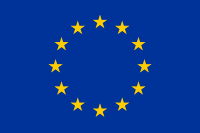Will European rules impact open source business models?


Analysts like NOiV in the Netherlands know that the procurement process there favors proprietary companies, and there are now efforts underway to change them.
The main reform is to allow for downloading and implementation of open source without a formal tender, bypassing the expensive procurement process.
But Roberto Galoppini writes that, while some open source companies like Funambol can take full advantage of the new openness, others like Alfresco can't. That's because of differences between "enterprise" and "community" versions meant to support proprietary systems.
Galoppini called this morning responding to a note left by our own Matt Asay, an Alfresco executive, insisting that the company is doing well in government markets despite its "progressive" license process, which he said aims to deliver "the right license for the right phase of the company's development."
Matt also wrote in response to yesterday's post that Alfresco is doing very well, and that its public discussions of its licensing strategy do not represent any form of agonizing, just transparency.
Still, if open source companies are going to separate the functions in their enterprise offerings from what they deliver their communities, they may make themselves subject to a European procurement process when they deal with government clients there. It's something to be aware of.
It's also something all open source companies need to be wary of. Separations of code functions or support levels that are meant to convert enterprise downloaders into buyers can backfire in unexpected ways.